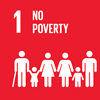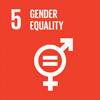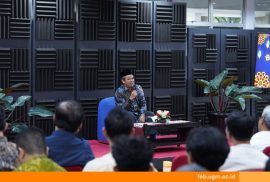
The Coordinating Minister for Social Empowerment of the Republic of Indonesia, Dr (HC) Drs. Abdul Muhaimin Iskandar, urged students to continuously innovate and contribute solutions to the nation’s challenges, particularly in the social and economic sectors. He expressed his hope that students would come up with new innovations in economic empowerment.
Muhaimin said that Indonesia is currently facing three major development challenges: poverty, employment, and micro, small and medium enterprises (MSMEs). Therefore, the government is striving to implement sustainable development scenarios to address these national issues.
“Currently, 24.06 million people are still classified as poor, with 3.17 million among them falling under the category of extreme poverty,” he said during the seminar titled “Strategies for Empowering MSMEs Through Inclusive Investment for Sustainable Economic Growth,” organized by the Student Representative Body of FEB UGM on Thursday (May 8) at the Joglo of the UGM Innovation and Creativity Center (GIK).
On the other hand, Muhaimin revealed that the unemployment rate has reached 7.28 million people or 4.76% of the national labor force. Additionally, there are around 65 million MSME players, of which 99.62% are micro enterprises that have yet to receive effective mentoring.
He explained that since the establishment of the new government, the Ministry has been working to implement a sustainable development scenario. According to him, Indonesia must revise its development mindset by adapting to a new economic system, including adopting new approaches through technology for empowerment and development.
“When a nation creates a new strategy, empowerment is the only way forward. As Indonesian citizens, we must develop our skills, foster creativity, and encourage cross-sectoral collaboration. Economic independence must begin with our domestic potential,” he emphasized.
Meanwhile, the Deputy for Coordination of Community Economic Empowerment and Protection of Migrant Workers, Leontinus Alpha Edison, stated that his office has developed the “Perintis Berdaya” program as a solution to issues surrounding MSMEs, the creative economy, cooperatives, and Indonesian migrant workers.
“These issues require integrated solutions through the four pillars of Perintis Berdaya, which consist of flagship programs from the Coordinating Ministry for Community Empowerment,” he explained.
The first pillar, Berdaya Bersama (Empowered Together), focuses on capacity building. The second, Berdaya Berusaha (Empowered in Business), supports local enterprises through access to raw materials, production, and more. The third, Berdaya Finansial (Financial Empowerment), improves public access to financing. The final pillar, Berdaya Global (Globally Empowered), provides standardized protection for Indonesian migrant workers.
At the same event, UGM Vice Rector for Education and Teaching, Prof. Dr. Wening Udasmoro, S.S., M.Hum., DEA., expressed hope that FEB students would become key drivers of community empowerment through synergy and collaboration with MSMEs across Indonesia after graduation.
“In facing increasingly complex economic challenges, UGM, as the people’s university, not only produces excellent graduates but also fosters a generation of workers who provide real solutions for society. FEB UGM graduates are expected to be the backbone of people-centered economic development and lead collaborative efforts to empower MSMEs throughout the country,” Wening stated.
Earlier, Vice Dean for Academic and Student Affairs of FEB UGM, Bayu Sutikno, S.E., M.S.M., Ph.D., in his welcoming remarks, expressed his hope that the discussion would provide students with in-depth insights into MSME empowerment for sustainable economic growth, directly from the Coordinating Minister for Social Empowerment.
Reportage by: Shofi Hawa Anjani
Editor: Kurnia Ekaptiningrum
Sustainable Development Goals













